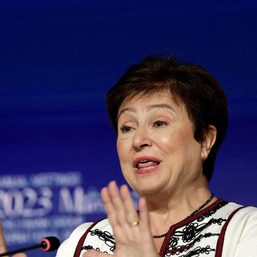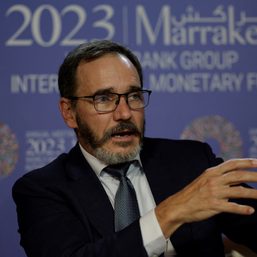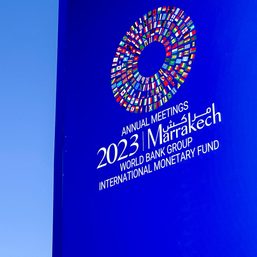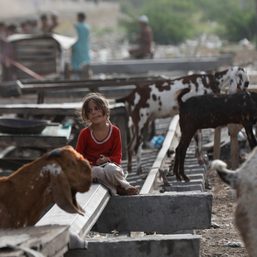SUMMARY
This is AI generated summarization, which may have errors. For context, always refer to the full article.

The course of the COVID-19 pandemic could dramatically alter the outlook for the global economy, either for better or for worse, the International Monetary Fund (IMF) said on Tuesday, October 13.
The latest edition of the World Economic Outlook projects the global recession will be less steep than anticipated in June, with a 4.4% contraction, but the report offers two alternative scenarios depending largely on whether the virus can be reined in:
Downside scenario
If containing the virus proves more difficult than expected, mandatory or voluntary measures to prevent the spread will worsen the drag on economic activity.
That would cause a deterioration in 2020 global growth of 0.75 percentage points, and gross domestic product (GDP) growth would be almost 3 percentage points weaker in 2021, compared to the current forecast of 5.2%.
“The negative impact on the level of GDP is roughly twice as large for emerging market economies as for advanced economies,” since they have less resources to spend, the report said.
This scenario also assumes progress on vaccines and treatments for the coronavirus are slowed, which “leads to a deterioration in activity in contact-intensive sectors, with the associated income effects spilling over to other sectors,” according to the report.
Access to financing would tighten, and the protracted weakness would create “persistent damage to economies’ supply capacity” and rising unemployment, leading to “scarring effects” felt in 2022 and beyond.
Upside scenario
The global outlook could turn out better than currently expected if “all things in the fight against COVID-19 go much better than assumed in the baseline,” the IMF said.
“Global growth under the upside scenario gradually accelerates relative to the baseline, with growth roughly 0.5 percentage point higher in 2021, rising to roughly 1 percentage point higher by 2023,” the report said.
The baseline projects $28 trillion in lost output over the next 5 years, but under this scenario, “by 2025, the level of global GDP is roughly 2% above the baseline, with the improvement in emerging market economies almost double that in advanced economies.”
That would mean rapid advances in treatment, including a ramp-up in vaccine production, would reduce the death rate, helping to restore confidence, and allow the hardest-hit sectors “to bounce back more quickly” and “lead to higher spending across other sectors.”
The faster bounce-back also would lead to fewer bankruptcies, with positive implications for employment. – Rappler.com
Add a comment
How does this make you feel?


![[Time Trowel] Evolution and the sneakiness of COVID](https://www.rappler.com/tachyon/2024/02/tl-evolution-covid.jpg?resize=257%2C257&crop=455px%2C0px%2C1080px%2C1080px)







There are no comments yet. Add your comment to start the conversation.